The past is a foreign country; they do things differently there.
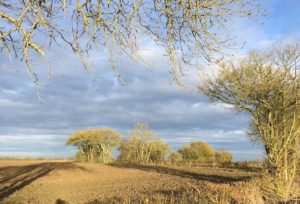
“The only traffic I hear is ambulances,” said my daughter in London. In rural isolation here that stark sentence brings home the threat.
Writing anything at this time seems redundant, but life continues. The cycle of the year keeps turning.
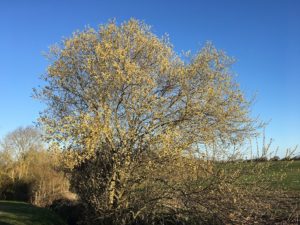
A month of two halves. The first, a phoney war situation when nothing had changed, but a creeping awareness of menace coming closer, and with it that the scenes of deserted streets and overwhelmed hospitals and rows of coffins in makeshift mortuaries in Italy and Spain – then France -might soon be our own normality. The second, when suddenly it was upon us, with hundreds of new deaths reported every 24 hours, the populace confined to their homes, the elderly told to stay put for four months, and a government scurrying to catch up with what should have been done so much sooner.
New phrases are on everyone’s lips: lockdown, self-isolation, social distancing. “C19” is no longer a shortened form for the nineteenth century, but something deadly which stalks us, waiting for one careless moment, one slip of our guard.
It seems somehow irrelevant to write of the ‘old’ normal. The recent past, the beginning of March, seems long distant, as alien to our present way of being as that of a previous century. But maybe recording life and times is still important.
The old normal

In like a lion came March, with tempests of wind and even more rain – a continuation of our dark and drenched winter. Work took me to France the first weekend of the month. As Eurostar sped me to Paris, and another sleek and smooth TGV raced me to Reims, I saw fields under water and trees down as they were in England, the similarities smoothing out the shock of the speed of travel.
France, ahead of the UK in its number of Covid-19 infections, was definitely nervous. No-one shook hands; no-one kissed; Friday night restaurants and bars were nearly empty; hand sanitiser was much in use. I felt compelled rather self-consciously to wipe down the seat tray and arm rest of the trains.
Despite the advancing virus, the meeting in Reims went ahead. I was there as an observer, representing my organisation, and made a brief speech presenting it, with many expressions of fraternity in this post-Brexit age. I was treated royally, which was quite humbling – and surprising, given the usual French jibes of “Who burned Joan of Arc?” when faced with the English. Champagne apéritifs, dinner, lunch, a private tour of the cathedral and Art Deco Carnegie Library. Walking along a street past the Archbishop’s former residence I caught sight of a knocker on the main door…I wonder if some frustrated former archbishop commissioned it specially…
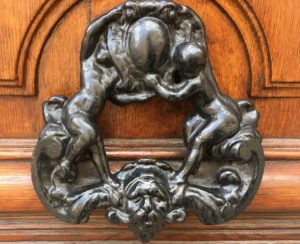
That same week I went to a talk in a neighbouring village about owls. Owls, I learned, are now big business, farmed like puppies as must-have accessories and pets, thanks to the popularity of Harry Potter and Hedwig, his snowy owl. The tame talking owl Archimedes, belonging to Merlin in T.H. White’s “The Sword in the Stone,” is surely a prefiguring of Hedwig.
My childhood reading of this book gave me a love of owls, and hence I went to this talk. Alas, children discover that the owl their parents were persuaded to purchase is no Hedwig, and must be cared for. Thus many end up in sanctuaries, and cannot be released into the wild. A barn owl and a tawny owl were present to illustrate the talk. On my walks I see many barn owls hunting silently in the twilight of dawn and dusk, and I hear tawny owls most nights, but I had never come so close.
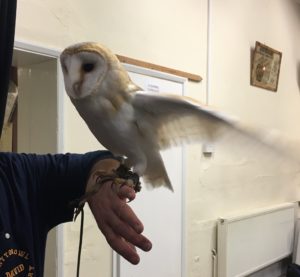
I was allowed to hold the barn owl, and stroke her softly with the back of my finger. My reaction to her beauty and to her proximity surprised me. I had to fight back tears.
On one of the last days of our freedom (oh, if only we had known it was about to be so curtailed) the dog and I went to Dunwich, and walked along the shingle shore towards Walberswick. Hard to think of it as once a busy port, with its many churches now long sunk in the invasive sea. Dating back to Anglo-Saxon times, Dunwich once stood proud as the capital of the kingdom of the Eastern Angles, at its mightiest in the 14th-century matching London for size. It was a seat of power for the Anglo-Saxon bishops for centuries, an international port, and the Domesday book of 1086 puts the population at over 3000.
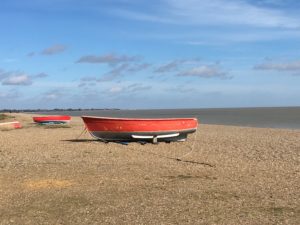
That day the sun shone. And with the sun came rapidly that wonderful opening up to life which is the spring. The land dried, winter mud and mire soon just a memory.
The mildness of the winter meant the greening came early. There were primroses and violets and cowslips and oxlips and birdsong and blue skies. The land rejoiced. My heart rejoiced.
And then came lockdown.
The new normal
It would not be unfair to say that earlier in this crisis the government (still cock-a-hoop no doubt with its resounding new majority and having “got Brexit done”) did not respond in any way commensurate with the situation, with what had been apparent to anyone who could see the straws in the wind. Covid-19 appeared in December in China. We have long known a pandemic was overdue; and the Cygnus crisis simulation three years ago proved the NHS – underfunded for years – would be unable to cope.

Government messages started to come thick and fast. First we heard that we must all be exposed to the virus to confer “herd immunity,” though it meant many elderly and vulnerable would die. This survival of the fittest policy made economic sense – no burden of care for the elderly, no blocking of beds in the NHS, no pensions to pay out….but it was fairly quickly dropped, for it showed a shocking disregard for the sanctity of life, and I – as a septuagenarian – didn’t feel quite ready to take one for the team. Besides, herd immunity is conferred by vaccination not widespread contagion.

Then we oldies were told we must isolate ourselves for four months to save our lives – the very lives which a few days before were to be recklessly dispensed with – and to prevent our health service being overwhelmed. This was swiftly followed by a general lockdown.
The lane is silent. A car is a rarity. There is a background drone of tractors finally able to get on the land and drill spring crops and the regular reports of the bird scarers. But otherwise all is silent . The builders on the site next to my property along the lane have gone, and it is mercifully quiet now the pile drivers and excavators have stopped, and machinery stilled. The dominant sound now is the high note of the skylark.
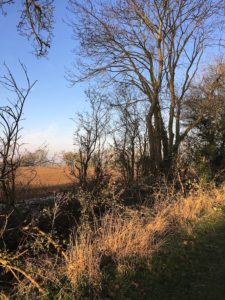
I choose to live isolated, surrounded by fields and fresh air, and in general I am happy with my own company, and that of a cheerful and enthusiastic dog. I grow much of my own food, and I am busy with work and many projects. I am thus blessed more than most in our current circumstances, but the prospect of being cut off from all community for months is daunting. No-one knows what will happen; what the future will be for ourselves, for our loved ones.
As I start to wake the garden up and sow seeds these symbolise tiny expressions of hope: when this germinates and grows and bears fruit the plague may have passed us by.
Growing anything, but specially food crops, earths us and roots us. It declares a continuity from the past to the future. We are performing the same actions, the same gestures on the same days of the year as our ancestors did, and future generations also will. It shows us our place in the scheme of things, in the cycle of birth and death, and it helps, at this time when grief or death may come suddenly and surprise us, to understand this.
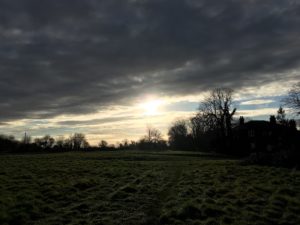
The reader will, I trust, forgive me. I updated this particular software and have been rather unsatisfactorily and unaesthetically getting to grips with it.

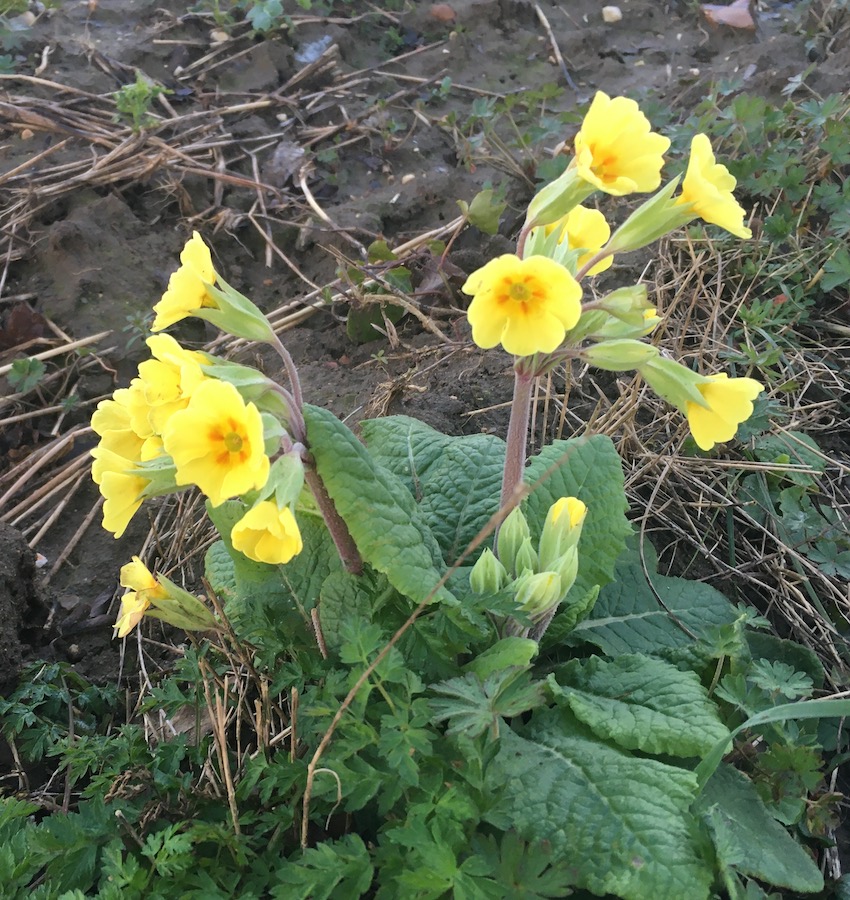
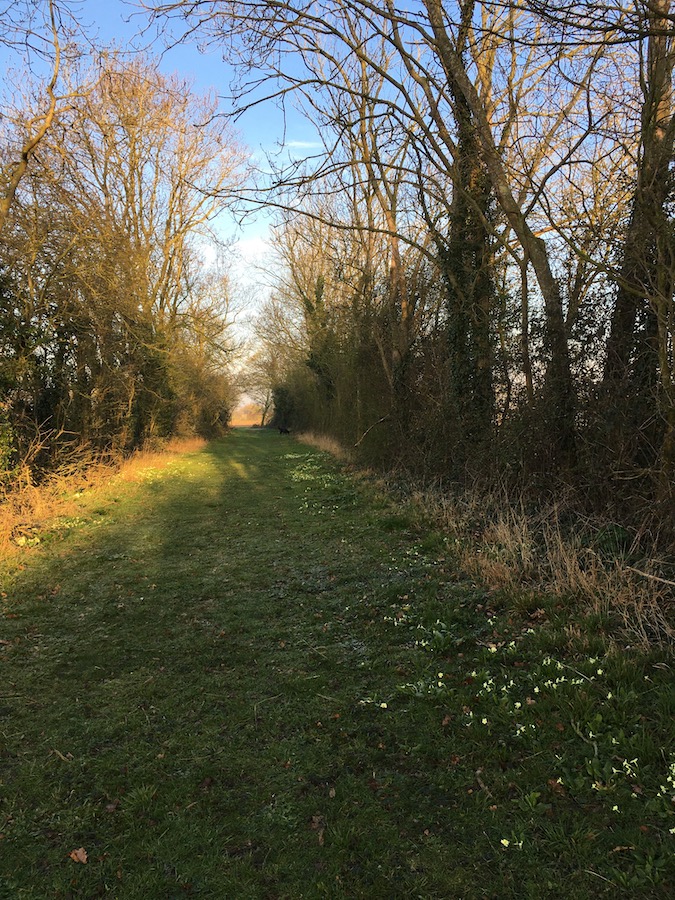
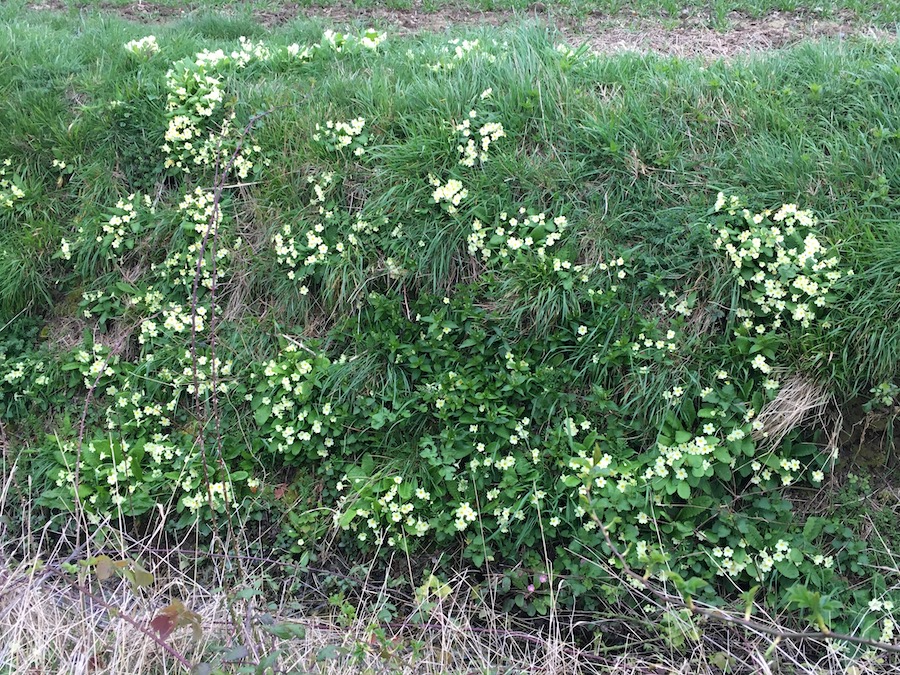
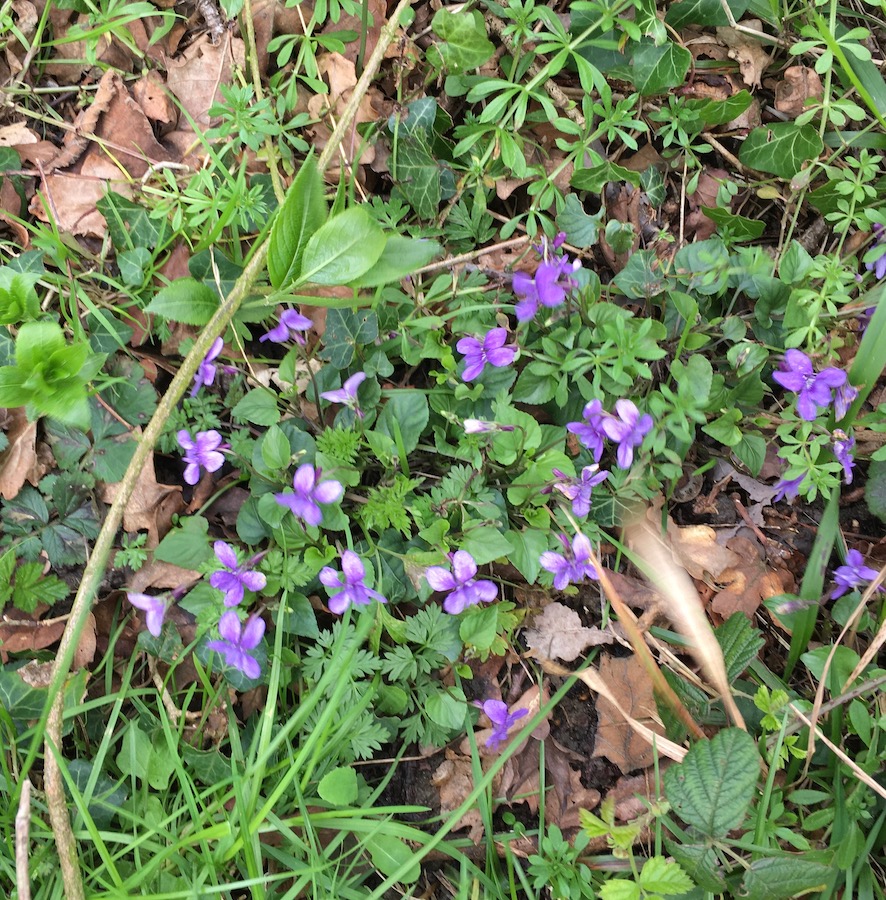
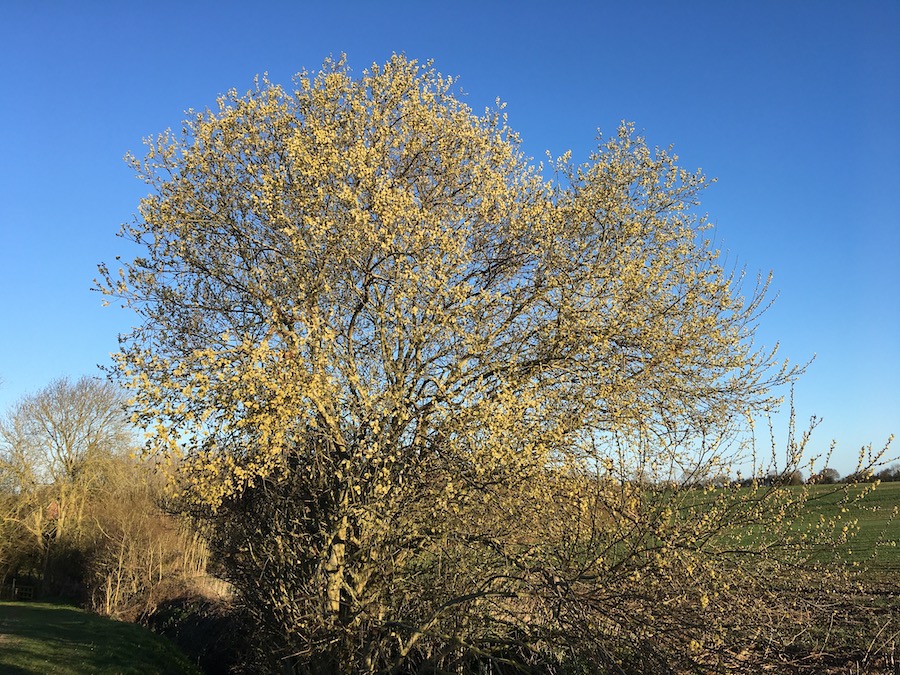
Lovely words, Mary!
Thank you